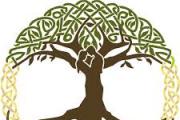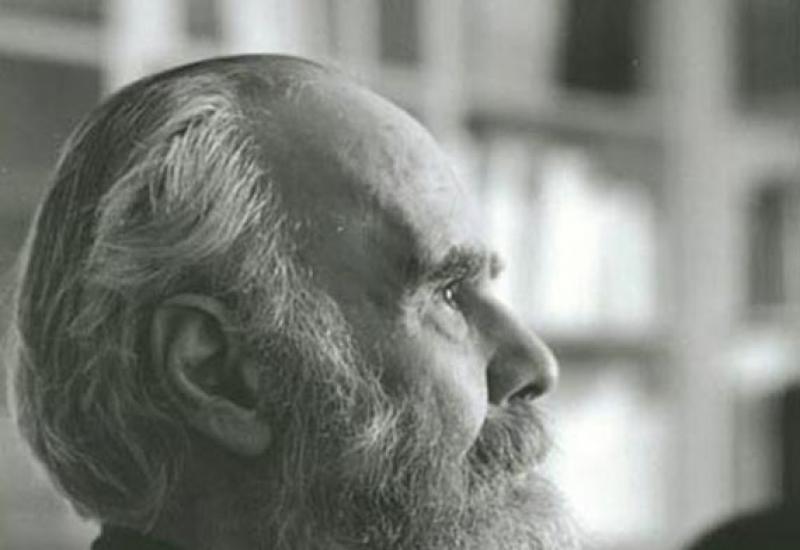After the fall, what was life good for? 5. In half: how I reconsidered my life after the fall. Is your work yours? Listen to your desires
Sometimes, when we read the lives of saints, we may have the idea that the life of a saint from the moment of his conversion to Christ or even from the moment of his birth was a kind of continuous straight line ascending from earth to Heaven. However, if this were so, then we would not see in the lives of these saints moments when they brought repentance to God. That is, we can say that even in the lives of the greatest saints of God there were still some kinks and changes - the grace of God did not constantly dwell in their hearts in the same measure. On the fifth Sunday of Great Lent we celebrate the memory of the Venerable Mary of Egypt. We know that she, having turned to God and repented, immediately moved on to life in the cruelest and strictest asceticism. However, if we read her life carefully, we will see that there were moments when she was tempted to return to the life she lived before: she remembered the sins she had committed, and those precious dishes that delighted her throat, and those wines that when - she drank - and then she fell to the ground and prayed for many hours, stretched out on the desert sand, asking the Lord to deliver her from these memories and from these desires. Thus, even when there are no reasons for a fall and there is no possibility for the fall itself, the soul can still experience these falls at some moments and then rise from them again.
The topic of uprisings after falls on our Christian path is one of the most vital and daily relevant for us. Moreover, for many people it is new, that is, the experience of how, in principle, to get up if you fall or fail in something, you have to acquire literally from scratch. The fact is that most people who come to Church begin to seriously concern themselves with themselves and their inner life only when they cross the church threshold. Sometimes you meet people who are wholesome and strict with themselves, who even before their churching - and even before their baptism - lived a life that many of us never manage to achieve, but there are very, very few of them. But basically, everyone comes from a relaxed life, when falls are not even noticed - at best, the most difficult episodes associated with causing offense and damage to other people remain in the memory and on the conscience.
When a person comes to Church, a very serious change must occur in his life. If we look at what happened to people who accepted the preaching of Christ or, subsequently, the preaching of the apostles, we will see that they reconsidered their entire lives and began to live completely differently, being in the firm conviction that before there was one life - in the darkness of sin , and from the moment of baptism a completely different one began, in which they are called to holiness. This does not mean that everyone considered themselves saints, but it does mean that everyone strived for holiness and perceived this as the norm of life. Moreover, the ancient Christians understood perfectly well that the holiness that they must acquire is not some special grace-filled gifts, not external evidence of their life, but those deeds that befit saints. The Gospel and all the Apostolic Epistles tell us quite specifically about these matters, as well as about what a Christian should avoid.
Of course, when we are baptized or, having been baptized in childhood, join the church as an adult, we must perceive it in exactly the same way: we are moving from one life to another. From an understanding of what kind of life is left behind us, an understanding should be born of what kind of life we need to enter and what to overcome or simply leave in the past. But the more time passes from the moment the Church in our country began to exist again unhindered, the more one can see how this understanding is being eroded. Church parishioners begin to view Christianity as something that enriches their lives, improves their lives, and occupies an important place in their lives, but not as something that is called upon to completely change a person’s life. Therefore, today even a believer finds it difficult to explain what a fall is: someone invents some artificial criteria for this; someone believes that in the Church “one must first of all rejoice,” and considers this a reason not to pay much attention to oneself; someone, on the contrary, regards almost every step they take as a fall, and in the end it all comes down to the formula “sinful in all words, deeds and thoughts”...
A person falls when he is overcome by that which prevents him from being a disciple of Christ.
But nevertheless, the fact remains: a person falls when he is overcome by something that prevents him from truly being a disciple of Christ. If we do not seriously realize this calling, then we are like some little animals who, being in the thicket of the forest, saw that a fire had been lit at the edge of the forest, came running to this light and warmth and simply enjoy it. This is not bad for animals, but a person is called to something fundamentally different. We need to place this light and this warmth within ourselves, in our hearts, to give God a place in it. Human life always presupposes a certain height. And when we learn to hold this level of height, we will begin to tangibly fall and hit ourselves, but only then can we really, and not in our imagination, learn to get up.
"Scratches" and "steps"

At the very beginning I said about the saints that they too experienced falls. What were these falls? For example, the 20th century ascetic Hieroschemamonk Ephraim of Katunaksky describes such a case. One day, as usual at dawn, he went to serve the Liturgy, which he performed every day, and... he did not at all feel at the service that grace and that joy that usually came. And he found the reason for this in the fact that the night before a spiritual friend came to him, they discussed some events in the life of the Church and at the same time talked in one way or another about those people with whom these events were connected. It is difficult to imagine that they slandered them and condemned them in any obvious way - most likely, they were simply talking about business, and at the same time their hearts were inclined to condemnation, but as a result of this, Father Ephraim felt that he could no longer serve like this, as he served before. And he asked the Lord for forgiveness, gave his word that he would never do this again, and, apparently, he kept it.
Or, for example, you can look into the diary of the holy righteous John of Kronstadt and see how he writes that he is standing at the service, at the Liturgy, his miter lies next to him, and the sexton came and hung the censer so that the smoke from it pours onto this miter The thought enters the heart of Father John that the miter will become sooty and he will feel sorry for it - and he experiences this as a fall, because at this moment during the Liturgy he is thinking not about God, not about the Sacrament being performed, but about some kind of miter. He begins to scold and shame himself, with approximately the following words: “Poor old man, how many of these miters do you have? They can actually force everything here, but you’re worried?!” Or another episode: he leaves the temple or leaves the church yard and sees a woman, whose appearance makes him feel condemned. And he immediately experiences such spiritual darkness, such melancholy that he prays to the Lord for forgiveness, and grace returns.
Such were the falls of the saints. Basically, these are certain movements of the heart that were known only to them and God. Each person will have his own downfalls - it all depends on how he lives. For some, this is condemnation of another person in a conversation - despite the fact that it was decided not to let any condemning words out of one’s mouth; for some - a breakdown during fasting, when a person eats something prohibited; and for some, perhaps, a drunken brawl after a long period of abstinence from alcohol. It is only important to understand that it is not the food itself, not the word itself, that plunges us into a state of fall, but the fact that we may not commit some sin, but we commit it. In general, there is such a paradox in spiritual life: the point is not what you do, but whether you take a step up or a step down. The most important thing in our life is the direction of movement. The Monk Abba Dorotheos says that before you begin to climb the ladder leading to Heaven, you need to at least just stop going down. And in order to stop going down, you must climb up - that’s the pattern.
Why do people who live like pagans, in pursuit of pleasure, so often perceive the falls and “climbing” of believers as something frivolous and believe that Christians are simply inventing restrictions for themselves? It seems to me that Saint Ignatius (Brianchaninov) best answers this question. He says that on the surface of the table, which is all mutilated and scratched, new damage is simply no longer visible - so no, one might add, there is no visible need to take care of them and to handle this table in any particular way. But if it's a polished surface that's been maintained, any scratch on it will be extremely noticeable. Likewise, for a person living, from a spiritual point of view, in some kind of inner hell, to whatever he exposes his soul to, the need to abstain from condemnation in thoughts or from fast food may seem absurd, but for a believer who already sees the surface of his soul and can imagine its original appearance, all this is completely different.
The Treadmill Principle: Why is it so hard to get up?

People have very different structures, and believers also experience falls in very different ways. But invariably the most difficult thing is to get up after these falls. In a sense, this difficulty is more characteristic of our time than any other: the general relaxation in the Christian life affects everyone, makes the entire community of Christians more weak. If we compare us with the ancient Christians, we probably resemble some kind of mutants who are both spiritually and physically affected by the poisons that literally permeated the world around us. Previously, people may have died more from diseases, but they did not complain throughout their lives about one thing, then another, then a third, like most of us. But our health is often disgusting, as is our spiritual state.
Coming to terms with life in a state of fall is the most terrible and disastrous thing for a Christian
Of course, the enemy of the human race takes advantage of this. Seeing that a person has almost no strength, he puts the following thought in his heart: now you will again waste this strength in vain, because no matter how much you get up, you will still fall. And a person sometimes comes to terms with life in a state of fall - this, in fact, is the most terrible and disastrous thing that can happen to a Christian. Of course, the majority of Christians do not live in extreme states of decline - in adultery, in alcohol addiction, but quite a few ultimately allow themselves to commit those sins for which they regularly repent in confession: condemning, envying, getting irritated, remembering evil. And it is very important not to miss the moment in ourselves when we risk coming to terms with it and getting used to it. You need to drive away the thought: “This is what will haunt me until my death!” No matter how much we pursue, we will struggle and flounder; in fact, the Lord probably first of all evaluates not what we were able to achieve, but how much we struggled.
The Venerable Elder Paisius has this idea: let’s say you don’t see any success, but at the same time you don’t know who is opposing you! Maybe before you were confronted by just one weak demon, but now by a whole horde of demons. That is, the result remained zero, but the strength with which you resist increased, you yourself became stronger. This is the principle of a treadmill: we don’t move anywhere, but the load and speed increases. This may not be the case in our particular case, but reminding yourself of this thought in moments of despondency can be useful.
You can also remind yourself that whatever the Lord finds us in, He will judge us in, and if we simply lie helplessly at the bottom of the pit, then we ourselves take away the hope that the Lord will find us in a feat, in an upward movement . The Monk Isaac the Syrian speaks wonderfully about this: he calls on a Christian to become like a wanderer who travels by passing transport somewhere to distant lands. A traveler rides a horse, the horse falls - he walks. He sticks to some kind of convoy, after some time the cart on which he is riding deviates from the road and overturns - he again continues on foot. He gets to the seaport, boards a ship, is shipwrecked, swims on some piece of wood to the shore and waits for the next ship to sail again. And at the end, the monk says that the one who does this will one day snatch the banner of glory from the hands of the giants and carry it in his own hands. And the Monk John Climacus writes that the patience of a person who falls and rises every day will ultimately be honored by his Guardian Angel and will give him strength not to fall, but to walk, having risen.
“Walk the tightrope”: how to avoid turning falls into a habit?

We remember from the Gospel that the Lord says to the Apostle Peter: you need to forgive your brother’s sins “up to seventy times seventy times” (Matthew 18:22), that is, in fact, as many times as there is a need for it. This means that the Lord is ready to forgive us as much as we sincerely and without guile ask Him for forgiveness. The Monk Nicodemus the Holy Mountain has the following idea: if we have fallen in something, we need to stop, ask for forgiveness from God, rise up and start our lives, as it were, anew.
We must believe that the Lord forgives, but at the same time clearly feel that we can fall and die. There is such an accurate image in this regard: a man walking on a tightrope. Not a single tightrope walker can be sure that he will make it: even if he falls very rarely, there is still such a possibility. But at the same time, not a single tightrope walker stands on the rope, already anticipating the fall: no, he will get there, he must get there! With approximately the same mood, we should begin, as if standing on a rope, each of our new days.
Heartfelt contrition, if sincere, kindles jealousy to continue the fight
And one more important point: when a person lies after a fall, without moving from his place, his rapid relaxation occurs, and if he slows down in this state, he can turn into a spiritually paralyzed person who, like the evangelical paralytic, needs four friends who will bring him to the house where the Lord is, they will dismantle the roof of this house and lower down the bed with the sick (see: Luke 5: 17-26). You need to be able to tell yourself: “Now I can still get up with great effort and go somewhere, but a little more of this lying in a hole - and I may be completely paralyzed.” Sometimes they ask: “Then how can we lament and mourn our sin?” It is necessary to mourn sin, but this does not prevent us from getting up - and if it does, it means that we understand something wrong. Heartfelt contrition, if it is sincere, kindles zeal to continue the fight - against our infirmity, weakness, variability and, of course, against the enemy of our salvation.
And about mourning... Almost every day the priest meets people who are ready to cry about their sins, but are not at all ready to change. And this again is a disastrous path: in the end, the enemy will seize the moment and carry us through these tears into final despondency and despair. We must understand that the Lord expects repentance from us, but even more so He expects correction from us. And sometimes it is necessary to first move away from the edge of the abyss, get out of the situation, and only then mourn your sin. Such examples can be found in patericons: an ascetic who had fallen into grave sin could continue to behave as if nothing had happened, because he understood that out of despair he could completely break down. After some time, he came to his senses and then shut himself up in his cell and cried about his sin.
For a modern person, burdened with a mass of everyday worries, often having little opportunity for solitude, it seems to me that the path of active repentance is more important: the fact that we are correcting ourselves should first of all be evidenced by our actions. In this way, we also disorient the enemy and make him perplexed: after such falls, everything always fell out of our hands, what’s wrong now? So let the enemy be perplexed, but the angels in Heaven rejoice!..
Author.. As always, everything is from behind the hill, but they forgot about ours...
Savitskaya Larisa Vladimirovna
On August 24, 1981, the An-24 plane on which the Savitsky spouses were flying collided with a Tu-16 military bomber at an altitude of 5220 m. There were several reasons for the disaster: poor coordination between military and civilian dispatchers, the An-24 crew did not report evading the main route, and the Tu-16 crew reported that they had reached an altitude of 5100 m 2 minutes before it actually happened .
After the collision, the crews of both aircraft died. As a result of the collision, the An-24 lost wings with fuel tanks and the top of the fuselage. The remaining part broke several times during the fall.
At the time of the disaster, Larisa Savitskaya was sleeping in her seat at the rear of the plane. I woke up from a strong blow and a sudden burn (the temperature instantly dropped from 25 °C to −30 °C). After another break in the fuselage, which passed right in front of her seat, Larisa was thrown into the aisle, waking up, she reached the nearest seat, climbed in and pressed herself into it, without having buckled herself in. Larisa herself later claimed that at that moment she remembered an episode from the film “Miracles Still Happen,” where the heroine squeezed into a chair during a plane crash and survived.
Part of the plane's body landed on a birch grove, which softened the blow. According to subsequent studies, the entire fall of the plane fragment measuring 3 meters wide by 4 meters long, where Savitskaya ended up, took 8 minutes. Savitskaya was unconscious for several hours. Waking up on the ground, Larisa saw in front of her a chair with the body of her dead husband. She received a number of serious injuries, but could move independently.
Two days later, she was discovered by rescuers, who were very surprised when, after two days they came across only the bodies of the dead, they met a living person. Larisa was covered in paint flying off the fuselage, and her hair was very tangled in the wind. While waiting for rescuers, she built herself a temporary shelter from the wreckage of the plane, keeping warm with seat covers and covering herself from mosquitoes with a plastic bag. It rained all these days. When it ended, she waved to rescue planes flying past, but they, not expecting to find survivors, mistook her for a geologist from a nearby camp. Larisa, the bodies of her husband and two other passengers were discovered as the last of all the victims of the disaster.
Doctors determined she had a concussion, spinal injuries in five places, and broken arms and ribs. She also lost almost all her teeth. The consequences affect Savitskaya’s entire subsequent life.
She later learned that a grave had already been dug for both her and her husband. She was the only survivor of 38 people on board.
Doctor Who, from the popular series of the same name, suggested that when standing on the edge of an abyss, a person feels an ancient desire to jump and an even more ancient desire to fall. From a philosophical point of view, the character may have been right, but from a biological point of view, he was not. Ancient instincts make people afraid of heights because falling brings death. Only a miracle can save a person in such a situation. And it happens more and more often.
Vesna Vulovich, 1972
22-year-old Serbian Vesna Vulovic dreamed of living in London, next to The Beatles, whom she adored. She had already come to England during her studies, but her parents did not allow her to stay here - they were afraid that their daughter would fall into sex, drugs and rock and roll. Then Vesna decided to become a flight attendant: this way she could visit London once a month without upsetting her parents.
Vesna was not supposed to fly on a DC-9 flying from Stockholm to Belgrade with stops in Copenhagen and Zagreb. The airline confused her with another flight attendant named Vesna. But Vulovich was only glad: her shift began in Copenhagen, and she had never been to Denmark before. The day before the flight, the girl walked with other crew members in an unfamiliar city. She would later say that her companions looked as if they knew about their imminent death, they just didn’t talk about it. The second pilot spent the whole evening talking about his children, and the first pilot completely locked himself in his room for a day.
During the transfer of passengers, crew members noticed an extremely irritated man. He stepped off the ramp and rushed to check his luggage. No one saw him again. The plane was destroyed in mid-air due to an explosion in the luggage compartment, so it is not difficult to guess what role this man played in the tragedy, but he was never arrested. The tragedy on the DC-9 plane remained officially unsolved.
Vesna Vulović lost consciousness when the plane began to fall apart in the air at an altitude of 10,160 meters. It is almost impossible to survive after falling from such a height while unconscious, but she survived - one of all. With concussions, broken bones, torn pieces of flesh, but still survived. The girl came to her senses a month after the tragedy, about which she remembered nothing. Fainting not only saved her life, but also protected her from the fear of heights. Having fully recovered, Vesna again tried to get a job as a flight attendant in the same company, but she was offered an office job so as not to attract unnecessary attention to flights on which passengers were served by a girl from the Guinness Book of Records.
Bear Grylls, 1996
The whole world knows Bear Grylls, the host of the absolutely crazy program “Survive at Any Cost.” Grylls became famous as a man who could overcome insurmountable places, defeat an alligator in hand-to-hand combat and drink his own urine from the body of a snake. It seems to viewers that this man has iron health, but since childhood, Bear suffered from various diseases. At an early age, the future traveler was diagnosed with dangerously high cholesterol levels, so Grylls must adhere to and do special exercises throughout his life so as not to die of a heart attack in the near future. But Bear Grylls received his most dangerous injury at the age of 21, while serving in the army. The young man jumped with a parachute, which broke at an altitude of 500 meters. Bear should have immediately unfastened it and opened the spare one, but he hesitated and fell on his back, breaking three vertebrae. By some miracle, Grylls managed to avoid a rupture in the spinal cord, so he not only remained alive, but was able to fully recover. The 18 months of treatment were difficult and painful. Doctors did not perform an operation on Grylls so as not to harm the young man’s health, so the young soldier treated his back with grueling hours of training and experimental massage.
After being discharged from the hospital, Bear Grylls immediately rushed to conquer Everest. Then there were expeditions in the Atlantic Ocean on an inflatable boat, a trip to Antarctica and a whole scattering of dangerous forays for the “Survive at any cost” program. For Grylls, every adventure is a challenge. He was afraid of heights and began to jump with a parachute, was afraid of death and again, time after time, walked towards it. Despite this, Bear Grylls really hopes to live a long life and raise his children.

Juliana Koepke, 1971
On December 24, 1971, 17-year-old Juliana Koepke and her mother went to the Peruvian city of Pucallpa, where her father was working at that time. Juliana was in a festive mood: she had just graduated from high school and was now going to celebrate Christmas with her family. On the Lockheed L-188 Electra plane, the girl got a window seat. She saw clouds gathering behind him.
The plane fell from a height of 3200 meters. The cause of the disaster was the mistake of the pilots, who flew straight into a thunderstorm front. Lightning struck the wing, after which the plane began to fall apart in the air. The last thing Juliana remembered was the weakening sound of the engine, the increasing screams of people and the green forest under her feet.
Juliana's parents were zoologists and lived in Peru for a long time. As a child, she spent a lot of time with her father in the Amazon jungle, so she knew well how to move in it. This knowledge came in handy for the girl 4 days after the tragedy. She woke up the day after the fall with a broken collarbone, torn ligaments, a concussion and numerous cuts. In such a state there was no point in thinking about independent salvation. Three days passed and the rescuers still did not appear. Then Juliana climbed through the jungle herself. Worms appeared in her wounds, and only a bag of sweets remained from food, but still the girl had enough for nine days of travel through the most dangerous tropical forests. She eventually found the boat and fainted next to it.
In addition to Juliana, several other people survived the moment the plane fell, but they all died a little later in the wreckage, because due to the rain and dense trees, rescuers were unable to find the fallen plane. Juliana herself showed them the crash site much later, but there was no one there to save.

"There is hope. Call" - this is how the sign on the Golden Gate Bridge in San Francisco begins. Its creators assumed that the bridge would receive the fame of the largest and, but fate decreed somewhat differently. Today, the Golden Gate is known as the most popular place for suicide in the world. The number of deaths here has long exceeded a thousand; from two to four dozen people jump from the bridge every year.
Suicides standing on the bridge are separated from the water by 60-70 meters. Almost everyone breaks into the water; those who enter the strait with their feet usually die from hypothermia or strong currents. But even the Golden Gate saw almost three dozen cases of happy salvation. The failed suicides fell into the water feet first, and then they were immediately pulled out by the coast guard, who, by a happy coincidence, happened to be nearby. Two cases have been recorded in which people, after a jump, reached the shore themselves and came to the hospital. And in 2011, an even more incredible incident occurred: a 16-year-old girl was found in the strait, but she did not die from hitting the water and spent 20 minutes in the icy strait.
Usually people rescued from the strait do not try to commit suicide again, but there is a known story when a girl jumped from the bridge twice - the first time she was saved, but the second jump still ended in death.

Joshua Hanson, 2007
Joshua Hanson has been called a "miracle man" after he fell from a 17th floor window and survived. The 29-year-old American was vacationing at the hotel with friends. The young people drank and began to run after each other along the corridors. Joshua ran especially fast - so fast that he crashed into double glass, broke through it and fell to the ground from a height of 60 meters. According to eyewitnesses, the man landed on his feet. He had no chance of surviving such a fall, but he did it anyway, although he received multiple internal injuries and was in critical condition for a long time.
Witnesses, doctors, acquaintances - in general, everyone involved in the event agreed that Mr. Hanson had a very caring guardian angel, because there were no other explanations for the miraculous salvation. And the hotel staff were faced with another unsolvable mystery: how could this young man accidentally break through the double reinforced glass?

My obsession with making as much money as possible evaporated as soon as I broke my ankle and had to stay home on sick leave for three months. It didn’t seem possible to me to work remotely in order to receive a monthly salary, as is, in principle, possible in the journalistic field - since the enterprise where I work as the editor-in-chief of a corporate newspaper is under security, and if you didn’t “beep” your pass in the morning checkpoint means you are absent from your workplace.
These thoughts haunted me: how is it that now I won’t be able to work and bring money to my family? I felt like a dependent, although my husband constantly encouraged me and said that all this was temporary, that everything would pass. Moreover, we always had enough money: in a very short time we successfully closed the mortgage, which hung over us like a sword of Damocles, preventing us from getting sick, going on vacation, or making minimal repairs in the apartment. We had to make sacrifices: I went to work even during colds and other ailments, we spent our holidays at home, we denied ourselves many things, we had no “extra” cash in our wallets, except money for travel... But we had a goal that We have successfully achieved: there are no obligations left to the bank.
When I broke my leg, time stopped. I began to look differently at the things that happen at the same job where my legs carried me through force for the last six months. I began to look deeper into myself, listen to my real desires and feelings. So, for a whole week I have been lying in a hospital bed in a cast, in which it is impossible to even turn over on my side. Then they take me to surgery - repositioning of bone fragments, where the broken bones are connected with a special metal plate and bolts. In the operating room they give me spinal anesthesia, after which nine hours of agony begin. Healthy men in the same condition call nurses to inject them with painkillers. But I endure it, because for medical reasons I cannot take any analgesics. The obsessive idea that I urgently need to go to work in order to have something to live on fades into the background, it becomes generally impossible to think about anything other than asking God to ease the torment... You promise to reconsider your life in return.
The first two weeks after discharge, I frantically search for a remote part-time job in order to somehow close the gap in the family budget that has formed because of me, but everything is in vain... My husband is calm, he constantly tells me not to think about money, because we can handle it, because we love each other. But this ingrained feeling of monetary dependence (or personal monetary Not dependence on others) is very strong in me, it is very difficult for me to accept the fact that I drop out of society for several months and do not earn money.
My husband does everything for me: he stays nearby, makes sure that I don’t fall down on crutches, which are difficult to move on because I’m not used to them, prepares food for me and brings it to bed, fulfills all my requests (“close the window, please,” “bring me an apple.” , “help me get to the toilet,” etc.), and even manages to work (luckily he was allowed to work from home for a while). Plus, he constantly goes to the clinic to extend his sick leave, cleans the apartment, buys groceries and cooks. This makes me very ashamed: how can this be? And in my mind I understand that this is how it should be, because he is my husband, whom I love, for whom I would do the same.
Another two weeks pass, and I already look at this situation completely differently. I made several important discoveries for myself that are far from new, but in most cases you don’t remember them in everyday life.
Happiness is not in the amount of money
The higher the salary, the higher the demands. For some, the conditional fifty thousand a month is a very good income, but for others it is impossible to live on a hundred. Another thing is that citizens of the post-Soviet space are accustomed to saving “for a rainy day,” or saving for something, or for travel, or “what if they fire you?” I belong to the last category, therefore, considering that we still have debts, and I went on sick leave, there was a fear that there was nothing to save now! How to live in constant fear? But after fear came a clear understanding: happiness is not measured by the amount of money. Much more important is the attitude of loved ones in such situations, their care, attention and love. A family can survive on one salary. Gradually, my fear went away, I accepted the situation, and my husband constantly inspired and encouraged me.
Your husband is the best
Yes exactly. You chose each other, you are together. Seeing my husband’s concern for himself, I wanted to devote more of my time to him (and there wasn’t enough of it when I went to work), share his interests, and cook delicious and healthy food. When I learned to walk on crutches and he went to work in the office, I made sure that he devoted all his free time from work to what he wanted. This was my contribution to the family budget - who said that it could only be material?
Is your work yours? Listen to your desires
In the everyday routine, a woman forgets about the true desires of her soul. But as soon as the first alarm bells appear inside, you need to listen to them. After all, desires are the voice of the heart, and only it knows what is best for you. I also conveniently forgot about my desires (after all, I need to work, bring money into the house), although I remember very well the day when I fell - I really didn’t want to go to work... Well, I didn’t go for the next three months.
God will arrange everything
Nothing in our life happens just like that. Any situation is a conversation between God and you. In my case, serious health problems helped ground me, gave me the opportunity to be alone with myself, limiting external fuss for three months. During this time, I reconsidered my attitude to many things: to money, to work, to lifestyle, to the environment (I realized which of my colleagues are just colleagues for me and which are friends). In the end, this helped me decide whether I need my current job, or do I need to take a break and set out with fresh energy to conquer new heights? I am very grateful to God for this period of my life.
Ultimately, when something happens in our lives that ruins all our plans and turns our lives upside down, we are free to react in two ways: either consider ourselves a victim of circumstances and become despondent, or perceive what happened as a sign from God, as a test, which will serve us well, because it is thanks to difficulties that we grow as individuals. We may unsuccessfully search for an answer to the question “Why did this happen to me? What did I do wrong?”, or we can try to understand: “Why was this situation given to me? What lesson can I learn from it? And rise to a new step in your such an interesting and unique life.
When republishing materials from the Matrony.ru website, a direct active link to the source text of the material is required.
Since you are here...
...we have a small request. The Matrona portal is actively developing, our audience is growing, but we do not have enough funds for the editorial office. Many topics that we would like to raise and that are of interest to you, our readers, remain uncovered due to financial restrictions. Unlike many media outlets, we deliberately do not make a paid subscription, because we want our materials to be available to everyone.
But. Matrons are daily articles, columns and interviews, translations of the best English-language articles about family and education, editors, hosting and servers. So you can understand why we are asking for your help.
For example, 50 rubles a month - is it a lot or a little? A cup of coffee? Not much for a family budget. For Matrons - a lot.
If everyone who reads Matrona supports us with 50 rubles a month, they will make a huge contribution to the development of the publication and the emergence of new relevant and interesting materials about the life of a woman in the modern world, family, raising children, creative self-realization and spiritual meanings.
2 Comment threads
21 Thread replies
0 Followers
Most reacted comment
Hottest comment thread
new old popular
1 You must be logged in to vote.
You must be logged in to vote. 0 You must be logged in to vote.
You must be logged in to vote. 4 You must be logged in to vote.
You must be logged in to vote. 1 You must be logged in to vote.
You must be logged in to vote. 2 You must be logged in to vote.
You must be logged in to vote. 3 You must be logged in to vote.
You must be logged in to vote. 4 You must be logged in to vote.
You must be logged in to vote. 2 You must be logged in to vote.
You must be logged in to vote. 2 You must be logged in to vote.
You must be logged in to vote. 2 You must be logged in to vote.
You must be logged in to vote. 0 You must be logged in to vote.
You must be logged in to vote. 0 You must be logged in to vote.
You must be logged in to vote. 1 You must be logged in to vote.
It doesn't matter how high you can climb, because at some point you will trip. Each of us stumbles - more than once - in our lives. In most cases, the scars from such falls remain forever. Maybe you just got fired from your job and don't know how to start over. Or perhaps you are persistent in trying to change something and are finding your new path. Sometimes we give our best for what we truly believe in, but in life not everything goes exactly according to plan, and at some moments you even want to throw out the white flag. Or you start to think that your dream is not worth so much suffering. This feeling of pain and gnawing doubt should not stop you. In fact, when you realize that you have fallen to the bottom, there is only one way - to push away from it as hard as you can. How can I do that?
1. Take time to acknowledge your pain.
When you are overwhelmed, you first tend to deny your situation or take it for granted. This is a huge mistake! If you are angry that you were fired; if you are depressed due to a failed business; if you are crushed by your partner’s betrayal, just accept your emotions. Take the time to feel and understand them. Your situation is a good start to rebuilding yourself and your life. You won't be able to get back up after a fall if you deny your pain. It will only accumulate and drag you down. Grieve, cry and scream if it makes you feel better. And this will definitely help!
2. Accept what you can't change
This is similar to the feeling of grief, but more from the understanding that what happened cannot be changed. If your business fails and you're deep in debt, you can't undo that fact. There is no point in turning a blind eye to such a situation - whether you like it or not, it exists. If your partner leaves you, it is painful and unpleasant, and the “recovery” may take some time. But you can't change anything, so start thinking about what's next. This is just part of the healing process, and the sooner you can accept and understand it, the better.
3. Be kind and forgive yourself
Having stumbled and fallen face first into the mud, you may feel guilty, turn on harsh self-criticism, and even add a little hatred to it. However, you must learn to forgive yourself and find a way out of the dark room. Think about all the people who have been in your situation and survived it successfully. What did they do to get better? Read success stories. The truth is that many, many people have felt and gone through exactly the same things that you are going through right now.
4. Analyze your options and change your goals
Once you have forgiven yourself and are ready to take the next step, begin to analyze and evaluate all your options. Ask yourself what you could do differently and think about what went wrong. If you made mistakes, describe each of them for yourself in order to understand the motives for your actions and actions. Think about how you will change the situation next time. Focus on the future and arm yourself with the experience you've already acquired. What do you want to achieve and when do you want to achieve it? Remember that one of the daily habits of successful people is goal setting. So, define your long-term goals and break them down into smaller daily tasks.
5. Make a plan for your goals
A goal without a plan is just a wish. This phrase by Antoine de Saint-Exupéry is a great reminder that having a goal is not enough. You must clearly formulate it, and then logically break it down into smaller subgoals at your own discretion. But if you don't have an action plan to implement them, everything will be in vain. Hence, develop a plan for each goal. If your overall goal is to “get well” after your divorce, and one of your sub-goals is to read inspiring and motivational books, plan to purchase such books. Such a plan may include small tasks, such as compiling a list of books you need by searching the Internet or reading reviews and reviews. But the most important thing is not to give up. Until you give up, you have no right to consider yourself a loser.














